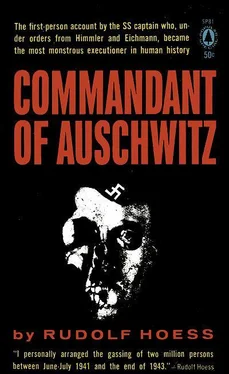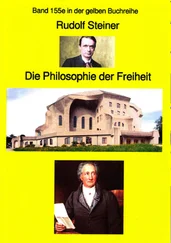A further five years lay ahead of me, without any prospect of the slightest remission. Several petitions for clemency from influential people, and even a personal request from someone who was very close to President von Hindenburg, had all been refused on political grounds. I no longer expected to be released before my full term had expired, but I now confidently hoped to be able to remain physically and mentally fit till the end. I had also made plans for keeping myself usefully occupied, for learning languages, and for educating myself further in my chosen profession. I thought of everything, but I never anticipated an early release.
Then it came overnight! In the Reichstag a sudden and unexpected majority was created by a coalition of the extreme right wing and the extreme left, both of which had a great interest in having their political prisoners set free. A political amnesty was granted almost on the spur of the moment, and along with many others I was set free. [20] The Amnesty Act in question was passed on July 14, 1928.
After six years of imprisonment, I was restored to freedom and to life!
I can see myself today, standing on the steps of the Potsdamer station in Berlin and gazing with interest at the milling crowds in the Potsdamer Platz. I stood there for a long time, until at last a gentleman spoke to me and asked me where I wanted to go. I must have seemed very stupid and my reply half-witted, for he at once turned and hurried away. All this bustle and activity were completely unreal to me. It was like watching a film. My release had been too sudden and unexpected, and everything appeared too improbable and strange.
A friendly Berlin family had invited me, by telegram, to stay with them. Although I knew Berlin well, and their house was within easy reach, it took me a very long time to get there. At first someone always accompanied me when I dared to go into the street, for I paid no attention to the traffic signs or to the frenzied streams of cars that filled the metropolis. I wandered about as though in a dream, and it was some days before I became reconciled to harsh reality.
People showed me every kindness. They dragged me to films and theaters and parties and to every possible place of entertainment, in fact to all those functions that a city dweller regards as a necessity of existence. It was all too much for me.
I was bewildered, and I began to long for peace. I wanted to get away as quickly as possible from the noise and rush and bustle of the big city. Away, and into the country. After ten days I left Berlin to take a job as an agricultural official. Many more people had indeed invited me to stay with them for rest and recuperation, but my desire was to work. I had rested long enough.
Many different plans were put forward by thoughtful families and friends interested in my well-being. All were eager to help me to earn a living and to make it easy for me to resume a normal life once more. I should go to East Africa, to Mexico, to Brazil, to Paraguay, or to the United States. All this was done with the honorable intention of getting me away from Germany, so that I would not become involved once more in the political struggles of the extreme right.
Others again, especially my old comrades, insisted that I take up a prominent position in the front rank of the fighting organization of the NSDAP (National Socialist German Workers Party).
I refused both these propositions. Although I had been a Party member since 1922 and was in firm agreement with the Party’s aims, I had nevertheless emphatically objected to their use of mass propaganda, their bargaining for the good will of the people, the way they appealed to the lowest instincts of the masses, and indeed their tone. [21] Rossbach was responsible for Hoess visiting Munich, where he joined the NSDAP in November 1922 with Party number 3240.
I had become acquainted with “the masses” during the years from 1918 to 1923! I certainly wished to remain a member of the Party, but I wanted neither any official position nor to join any of the subsidiary organizations. I had other ideas.
Nor did I want to go abroad. I wished to stay in Germany and help in its rebuilding. Building with a farsighted goal in view. I wanted to settle on the land!
During the long years of seclusion in my cell I had come to this conclusion: there was for me only one object for which it was worth working and fighting, namely, a farm run by myself, on which I should live with a large and healthy family. That was to be the content and aim of my life!
Immediately after my release I established contact with the Artamanen.
I had learned about this organization and its objects through reading its literature during my imprisonment, and I had investigated it thoroughly. It was a community of young people of both sexes, who had the interests of their country at heart. They came from the youth movements of all the nationalist inclined parties and were people who all, at one time or another, had wanted to escape from the unhealthily dissolute, and superficial life of the towns and especially of the large cities, and to discover for themselves a healthy and tough but natural way of life on the land. They did not drink or smoke, and forswore everything that did not contribute to the healthy development of their minds and bodies. They wanted, furthermore, to return to the soil from which their forefathers had sprung, and to settle on the land which had given birth to the nation.
That was also my desire, and the goal for which I had searched so long.
I relinquished my post as an agricultural official and joined this community of people who held the same ideas as myself. I broke off all contact with my former comrades and the kind families I had met. They were too conventional to understand my disagreement with their preconceived ideas. I wanted to be left completely alone to start my life afresh.
I very soon met the girl who was to be my wife. She had the same ideals as myself, and with her brother had found her way to the Artamanen.
From the very first moment it was plain to us both that we were completely suited to one another. Our mutual trust and understanding were such that it seemed as though we had lived together all our lives. We were complementary to each other in every respect and we shared the same outlook on life. I had found the very woman for whom, during all the tedious years of loneliness, I had longed.
This inner harmony has remained with us throughout all our married life, undisturbed by all the accidents of daily life, through bad times as through good, unaffected by the outside world.
Yet there was one matter that caused her perpetual sorrow. I could never talk to her about those things that most deeply moved me, but was always forced to ponder them over in my own mind, alone.
We got married as soon as possible, so that we might share the hardships of the life which we had willingly chosen. [22] In 1929.
We were under no illusions concerning the difficulties that lay ahead, but we were determined that nothing should stand in our way. Our life during the next five years was certainly not an easy one, but we never let ourselves be disheartened by any hardships. We were happy and satisfied when we were able, by our example and training, to win new adherents to our beliefs.
Three of our children had already been born; they were ready to take their place in the bright future we were planning. Soon our land would be allotted to us.
But it was not to be!
In June 1934 came Himmler’s call to join the ranks of the active SS. This was to take me away from the life which had hitherto seemed so secure and with so well-defined a purpose. [23] This statement requires amplification. According to his SS record file, Hoess joined the SS as “candidate” (Anwärter) on September 20, 1933. On April 1, 1934, he was accepted as SS-Mann, and promoted on April 20 to SS-Sturmmann (private first class). In the affidavit that he signed in British custody on March 14, 1946, he described his career between leaving prison and going to the Dachau concentration camp as follows: “Period 1929-1934, with various agricultural organizations in Brandenburg and Pomerania. Heinrich Himmler was also a member of the League of Artamanen (Gau leader, Bavaria)…. In 1933 on the Sallentin estate in Pomerania I formed a troop of Mounted SS. As a former cavalryman I was asked to do this by the Party and the estate owners…. While he was reviewing the SS in Stettin, Himmler’s attention was drawn to me—we already knew one another from the Artamanen League—and he urged me to join a concentration camp administration. That is how I came to Dachau in November 1934.”
Читать дальше












